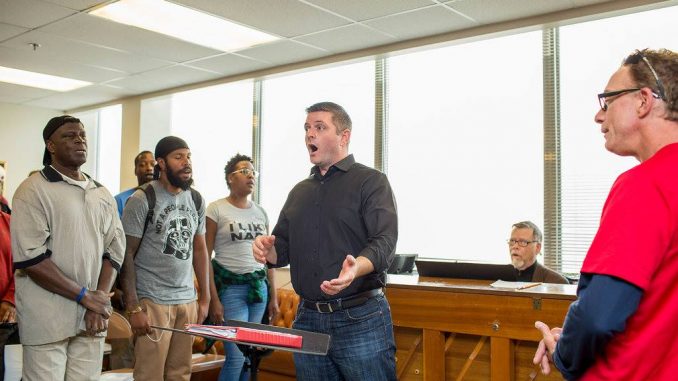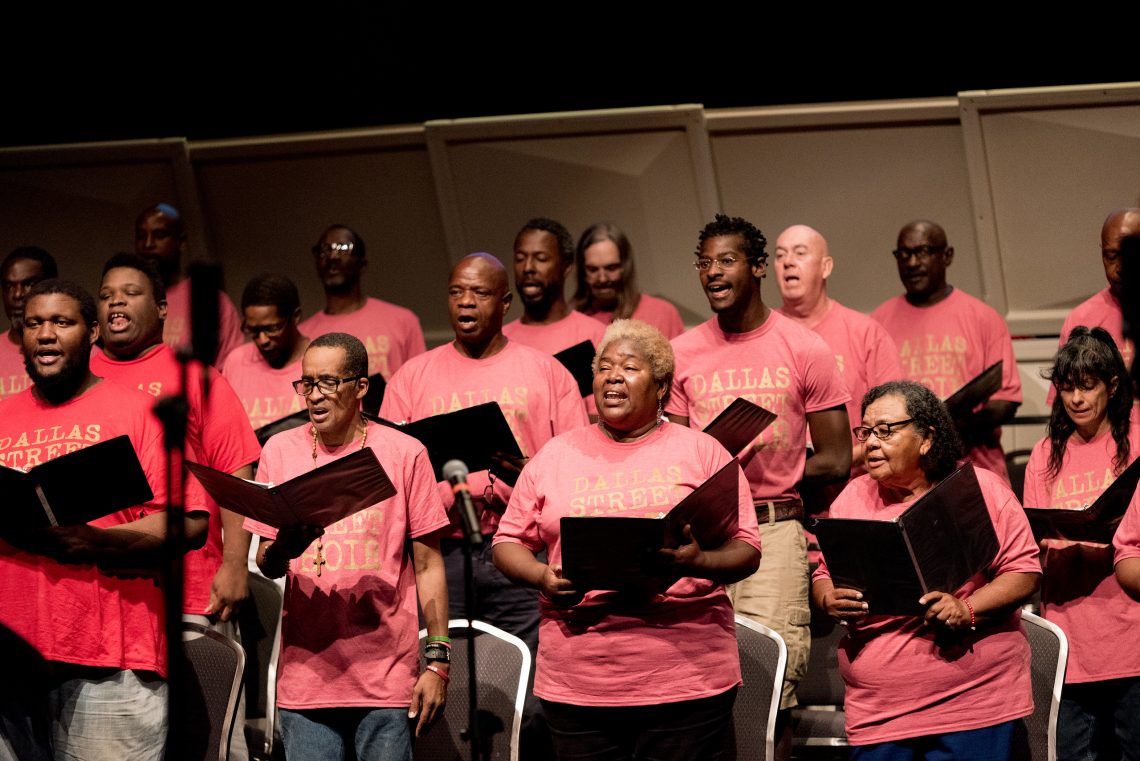
In October 2014, the first nine members of the Dallas Street Choir gathered together to perform the song “Street Requiem” with the Credo Dallas Community Choir led by Jonathan Palant.
“It was a piece to remember those who had died living on the streets,” said Palant, a 2002 choral conducting alumnus. “And I really just felt that we needed to include the street community in this performance.”
They were supposed to come together for a single performance to pay tribute to those who died living on the streets — but to Palant’s surprise, the choir ended up continuing.
Since its creation in 2014, the Dallas Street Choir meets every Wednesday from 9 a.m. to 3 p.m. at the First Presbyterian Church of Dallas in Dallas, Texas. The choir’s mission is to congregate those in the city who are either experiencing homelessness or who have in the past, through music, Palant said.
“That was really the goal was to bring people together, to build community, to say that we’re going to use music to show the world that, you know, it’s a little bit trite, but, homeless people are people, too,” he added.
At their first rehearsal, the choir only had about nine members, but more than 2,000 members have joined at different times since then. Now with about 70-80 members each week, they all have become closer through this project, Palant said.
“It became a sort of a little family,” he added.

Since its inception, the choir has had numerous performances. The choir has recorded a music video cover of Miley Cyrus’ “The Climb” in 2016 and has even performed at Carnegie Hall in 2017, becoming the the first street choir to do so, Palant said.
Debra Scott gained incredible opportunities as a member of the choir for the last four years, and said that Wednesday morning rehearsals are her “go-to.” From singing at Carnegie Hall to having her own original song performed, the choir has helped restore her confidence, she said.
“Being homeless, it can sometimes attack your self-image, how you perceive yourself, or how you feel like you’re perceived by others,” Scott added.
The choir provides incentives to its members that come out of the program’s funding, according to the choir’s website. For participating in a week’s rehearsal, members can either receive $2 or an all-day bus voucher.
“Sometimes the incentives could mean the difference between going hungry and having something to eat,” Scott said.
Palant hopes the choir brings its members the feeling of togetherness, a sense of stability and community, he said.
“We are giving voice to the voiceless, our motto is homeless not voiceless, so, through music we’re bringing attention to a very marginalized community,” Palant added.
Paul Rardin, Palant’s former classmate at the University of Michigan and a vocal arts professor at Temple, was surprised that Palant led a street choir but wasn’t surprised by its success.
“I could tell from his personality he’s an absolute natural on sort of the business side of things, and that’s proved true,” Rardin added.
Palant learned a lot from the choir’s members during his time leading them, he said.
“People affected by homelessness are people too, with joy and laughter and love and music and gifts,” Palant said. “Their socioeconomic status or their place in society shouldn’t relegate them to the sidelines.”
Amid the COVID-19 outbreak, the choir’s weekly rehearsals and upcoming projects are on hold until further notice, but they will start singing again as soon as possible, Palant said.


Be the first to comment